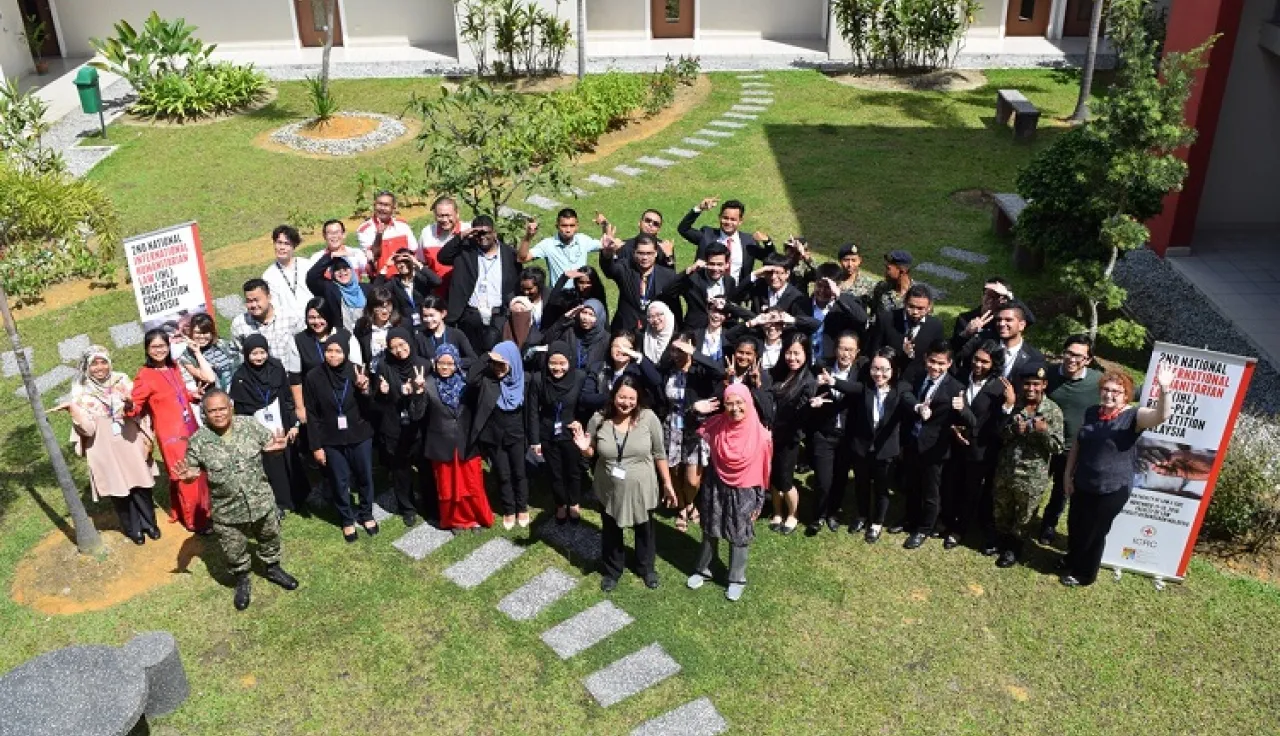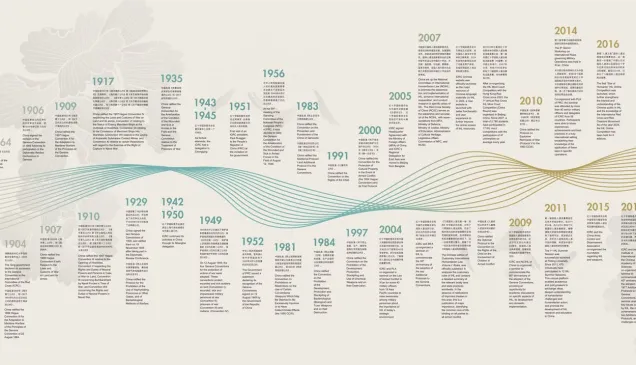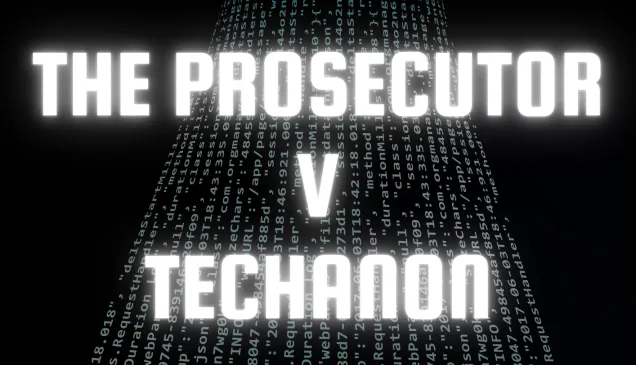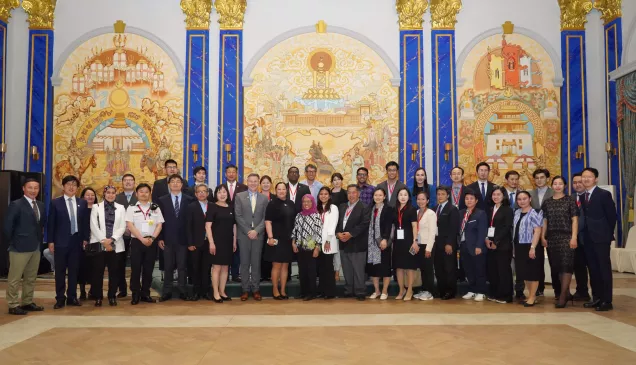When an IHL role play competition calls more than just legal knowledge

Azwa Abdul Kahar from University of Malaysia Sabah and her team were part of the 2nd IHL Role Play Competition organized by the ICRC and the National University of Malaysia (UKM) recently. From the 11th to the 13th of November, 14 teams from nine universities had to think on their feet and apply IHL in some challenging scenarios in and around the fictional nations of Rudamex and Malifex.
From clearing a "mine field" (with papier-mâché mines and UXOs) to playing government officials, ICRC delegates, rebels and private security contractors, participants met each challenge with enthusiasm. They had to negotiate access to detainees through a checkpoint, negotiate a ceasefire with rebels and discuss IHL violations with a host of actors, ably played by ICRC, IFRC, Malaysian Red Crescent and Singapore Red Cross staff.
The IHL Role Play Competition is a simulation-based, experiential learning competition designed to acquaint students with practical application of IHL during armed conflict. Unlike traditional moot court competitions, participants faced hypothetical case studies where complex legal issues were tackled. Participants were tested on IHL as well as public international law and judged on their presentation, advocacy and defence skills facing a diverse range of "actors" in simulations.
"The whole idea was to take law out of textbooks and convention and into practice, to see how it affects not only victims but also its implementation by authorities," explained Kelisiana Thynne, Regional Legal Advisor.
This year's competition kicked off with a workshop some six weeks before the competition where participants were given a small taste of what was expected. "The workshop was not as I expected," said Awza. "I went in thinking it was a normal debate competition but after the workshop, the first thing that came to my mind was that I need acting lessons!" She went on to explain that in addition to her legal knowledge she felt that she needed some extra "soft skills for persuading people" to boost her preparation for the role playing.
Competition days were filled with hurried references to the Geneva Conventions, panicked online researching, assigning of roles between team mates, assuming different persona for simulations, last minute coaching from the advisors and of course, spontaneous selfies.
The team from Advance Tertiary Collece (ATC) found that their biggest challenge was not knowing what scenarios were coming and what was expected of them. The team from University Sains Islam Malaysia (USIM) found it hard convincing affected civilians of their motives and genuine intent to help them. Azwa and her team thought that negotiating with the "rebel" army was their biggest challenge but "we overcame that by talking slowly, explaining our objectives and our neutrality."
In the end Azwa's team did not make the finals but she said "Even though our team didn't win, we really appreciated the experience and it was so valuable to us."
The semifinals included two teams from public universities, University of Malaya and UKM and two private universities, Advance Tertiary College (ATC) and INTI International University. ATC emerged winners and University Malaya's Hanan Khaleeda Fadzil won the best speaker of the Competition. The winning team will now compete at the All Africa Competition in Arusha next year.



